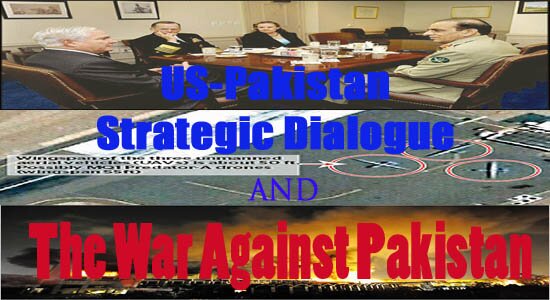
 Print This Post
Print This Post  Email This Post
Email This Post

North Waziristan: The Death Trap
Stirring the hornet’s nest may lead to more instability and insecurity in Pakistan: Concludes a new study by Spearhead Research
Download full report in PDF: Click here
GULPARI NAZISH MEHSUD | Research Analyst | 17 January 2011
WWW.PROJECTPAKISTAN21.ORG
The United States cannot win in Afghanistan without taking Pakistani national interests into consideration and without mainstreaming the Pakhtun citizens of Pakistan and Afghanistan, says a review of the Afghan war released by a Pakistani think-tank.
“No ‘Af-Pak’ strategy can succeed […] by causing instability, chaos and destruction in Pakistan,” says a new study titled, ‘North Waziristan: The Death Trap’, released by the Lahore-based Spearhead Research, an independent Pakistani think-tank headed by former Pakistani army chief Gen. Jehangir Karamat, who has also served as Pakistan’s ambassador to the United States. Research analyst Shemrez Nauman Afzal, author of the study, concludes that “Pakistan’s security perceptions and national interest must be factored into the roadmap for regional peace [and] the inclusion and mainstreaming of the Pakhtun population of both Pakistan and Afghanistan.”
Nine years into the Afghan war, Pakistani decision makers are now unanimous on a single overriding concern: that “Pakistani interests should indeed be factored into any possible future action, and into every perceived future outcome,” says the study.
On North Waziristan, the author warns that the regional situation is not ripe for a new military operation by Pakistan in this part of this territory. US and ISAF troops need to do more on the Afghan side of the border before any such operation. Moreover, Pakistan needs time to recover from years of terrorism and military operations.
The study does not explicitly refer to one more Pakistani grievance that has often come up in the writings of Pakistani commentators: the activities of third countries in Afghanistan, especially the concept of the Afghan soil being used by third countries for narrow strategic objectives.
Spearhead study makes a distant and veiled reference to this and other urgent Pakistani concerns by emphasizing that a “regional approach is sine qua non to eliminate terrorists as Pakistan claims no monopoly over the industry of terror because terrorism pervades every country in the region. Terrorism exists throughout South Asia – not just in Afghanistan and Pakistan – but also occurs in Iran and India, yet the blame is squarely put on Pakistan, which incidentally also suffers the most from terrorist attacks.”
One of the key recommendations of the report to the governments of Pakistan and the United States is that “it is time to talk peace and negotiate with the Taliban who control most of Southern and Eastern Afghanistan – now referred to as the “Pashtun heartland” – and are now slowly advancing into the previously peaceful North and North-West.”
The report disputes Washington’s claims that it can defeat the Taliban on its home turf and recommends that analysts avoid the urge to simplify Afghan resistance groups under the single banner of ‘Taliban’. The report also suggests that Afghan resistance groups’ links to al-Qaeda may not be as strong as American analysts think.
Click here to read or download the full study in PDF format.
© 2007-2010. All rights reserved. PakNationalists.com
Verbatim copying and distribution of this entire article is permitted in any medium
without royalty provided this notice is preserved.







The problem will not be solved till Pakistan is governed by Pakistanis.
For that to happen the army will have to be cut down to perhaps one tenth of its current size.
For that to happen, peaceful relations will have to be established with India.
For that to happen the mullahs will have to be suppressed.
Mr. Ehtisham, this has to be the silliest analysis I’ve read anywhere. So it’s the mullahs who prevent peaceful relations with India?
And India is just dying for peace with you, right?
And cutting your militry to 1/10th of its size will bring peace, not embolden your enemies, like we did in 1971 when we got busy in internal politics and left a symbolic military presence in East Pakistan, which emboldened peaceful India to mount a unilateral, unprovoked invasion of Pakistan across international borders?
Whatever you do, I will strongly counsel you against ever considering a career as a defense analyst. But you’re doing that anyway